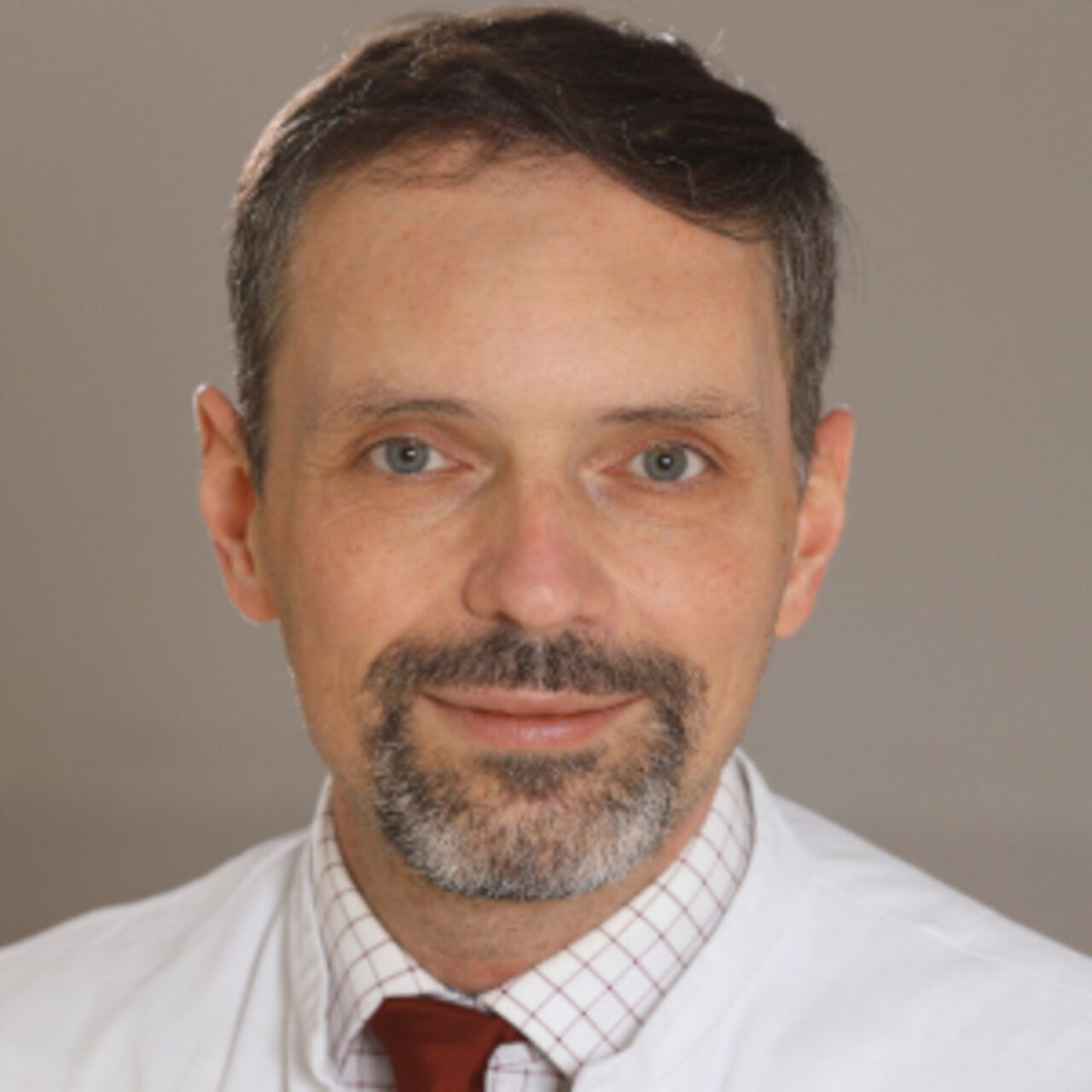Specialists in Hormone therapy for prostate cancer
2 Specialists found
Information About the Field of Hormone therapy for prostate cancer
What is hormone therapy?
There are some types of cancer that react sensitively to particular hormones and show increased tumor growth under their influence. The aim of hormone therapy as a cancer treatment is to inhibit the growth and progression of the disease by blocking these hormones.
This can involve, for example, suppressing hormone production with drugs or blocking the target structures (receptors) of the messenger substances. Hormone therapies are most frequently employed for cancers of the reproductive organs, such as breast cancer or prostate cancer, because these are more hormone-dependent. Hormone therapies have an effect on the entire body and are consequently also an option for advanced diseases with existing cancer metastases. For the most part, hormone therapy is not a curative (healing) method, but is used in combination with other treatments or as palliative treatment.
How does hormone therapy for prostate cancer work and what effect does it have?
Prostate carcinomas normally grow in response to hormones and especially testosterone, the male sex hormone, plays a role. Hormones cause an increase in tumor growth and therefore the progression of the cancer.
There are basically two options for hormone therapy for prostate cancer.
First, hormones can be deprived - the production of the body's own messenger substances is inhibited. This can be achieved through an operation (surgical castration), in which the hormone-producing testicular tissue is excised (orchiectomy). Today, however, this procedure is rarely performed.
More commonly, medications are used to inhibit testosterone production in the body (chemical/medical castration). So-called LHRH or GnRH analogs / agonists or LHRH or GnRH antagonists are used here. LHRH / GnRH is a hormone from the hypothalamus which stimulates the production and release of testosterone via a further pathway in the pituitary gland. Initially, LHRH analogs increase hormone production in the pituitary gland of the brain (hence the frequent initial combination therapy with antiandrogens), however, permanent stimulation gradually leads to a reduction in the release of testosterone. LHRH antagonists inhibit hormone stimulation in the brain and therefore testosterone production.
Alternatively, there are so-called antiandrogens, that do not inhibit hormone production itself, but rather stop the hormone from having an effect on the cancer cells. These drugs block the relevant receptors (hormone binding sites) so that testosterone can no longer work on the cells.
As a result of hormone therapy, the stimulating effect of the hormones on the tumor is inhibited so that its growth and progression is halted.
Hormone therapy can be carried out over a long period of time and also works in combination with other treatments such as chemotherapy.
How quickly and for how long does hormone therapy for prostate cancer work?
It takes around three to four weeks for LHRH analogs to bring about a significant drop in hormone levels in the blood. LHRH antagonists have a faster effect in the body, as hormone production is inhibited directly and not via overstimulation. Antiandrogens have a direct effect on the testosterone-sensitive cells and consequently achieve an effect very quickly, often within days. A very rapid effect can also be achieved within a few days with surgical castration, making it an option in rare cases of acute symptoms (e.g. pain) caused by cancers or metastases.
Hormone therapy can often halt the progression of cancer for months or even several years. The therapy is continued permanently and specific blood values, like the PSA value that can indicate tumor growth, are monitored at regular intervals. Nevertheless, the effect is usually limited in time because at some point the cancer will continue to grow regardless of hormones (castration-resistant prostate cancer).
What methods & therapies are available?
The oldest method of hormone deprivation therapy is bilateral orchiectomy, which means the surgical removal of the hormone-producing testicular tissue on both sides. This operation is generally quite uncomplicated and permanently lowers testosterone levels. However, it is often very stressful for patients and, unlike medication, cannot be reversed.
Drugs that lower testosterone levels in the blood by suppressing the body's own hormone production can be administered. They include LHRH or GnRH agonists and LHRH or GnRH antagonists. LHRH agonists like Goserelin, for example, are applied as a depot injection into the muscle or subcutaneous fat tissue.
The injection is repeated regularly after several weeks or months, depending on the substance used. Agonists can lead to a short-term rise in testosterone production, which can worsen the symptoms. This is why an antiandrogen is often administered in addition in the first few weeks to inhibit the hormone effect. LHRH antagonists such as Degarelix can also be injected, and some preparations can also be taken as tablets.
A different pharmaceutical approach is to inhibit the hormone effect directly on the tumor cell. This is achieved with substances for blocking the binding site of the hormones on the cell, known as the receptor. This prevents testosterone from binding and having a growth-stimulating effect. These medications are known as antiandrogens. A possible drug is Bicalutamide, given in tablet form. The body's own testosterone blood levels are only slightly affected by this form of therapy.
More recent therapeutic strategies are also available which intervene in hormone production by other means or influence hormonal signal transmission. Estrogen products are also occasionally used.
In most cases, hormone therapy is carried out as long-term therapy (continuous androgen deprivation, CAD), meaning that the patient is given their medication at regular intervals and its effect is constantly monitored, with blood tests for example.
Intermittent androgen deprivation (IAD) is another option, which involves taking frequent breaks from therapy after laboratory checks of the blood values. The aim is to reduce side effects and prolong the effectiveness of the therapy. There is no scientific consensus about which method is more effective and better tolerated.
There is also a difference between monotherapy (treatment with a single medication) and so-called maximum androgen blockade (MAB). With maximum androgen blockade, both testosterone production in the testicles is inhibited and the action of the hormones on the cells is blocked. Therefore, LHRH agonists or antagonists are combined with antiandrogens.
Moreover, hormone therapy can be initiated as immediate androgen deprivation, in other words as soon as the diagnosis of prostate cancer is established and the therapy criteria are fulfilled, or as delayed androgen deprivation only after symptoms occur.
What are the possible side effects?
Hormone therapy can be accompanied by a variety of side effects, as hormones play a role in important physiological functions of the body that are impaired during treatment.
Side effects include symptoms similar to menopausal symptoms in women, but vary greatly from patient to patient. These may include hot flushes, sweating, lack of motivation or even depressive moods. Due to the reduced testosterone level or the diminished effect of male sex hormones, patients also complain of erectile dysfunction and a reduced libido.
They may also gain weight and lose muscle mass, and bone density may also decrease, leading to osteoporosis. Also metabolic changes such as fat metabolism disorders or increased blood sugar levels are possible. Patients also complain of breast enlargement (gynecomastia) and the pain associated with it. Many side effects can be improved by making lifestyle changes, and different medications can also be prescribed (for instance to treat increasing osteoporosis) based on the symptoms.
Prostate cancer hormone therapy: chances of cure and prognosis
Although hormone therapy can halt the progression of prostate cancer over a longer period of time, this treatment alone cannot cure the disease. For this reason, hormone therapy is often used as a palliative treatment, to relieve the patient's symptoms and improve their quality of life.
Hormone deprivation prevents the cancer cells from growing, but does not destroy them. For this reason, depending on the stage of the disease, a combination therapy with surgery, radiotherapy or chemotherapy is indicated.
In the majority of cases (over 80%), prostate cancer responds initially to hormone therapy, improving the patient's symptoms and shrinking the tumor or metastases. This can often be sustained for months or even several years. After this long period, however, the disease usually progresses and is referred to as castration-resistant prostate cancer, in other words it continues to grow even without the influence of hormones.
The prognosis is highly individual and also depends on the stage of the cancer. At an early stage, prostate cancer has a very good prognosis and in many cases can be completely cured by surgery, for example. The chance of cure and the prognosis worsen with increasing severity, extensive tumors and metastases. Nevertheless, survival is possible for many years even with palliative therapy.
Which doctors specialize in hormone therapy for prostate cancer?
The clinical presentation of prostate cancer is treated by specialists for urology. As prostate cancer is one of the most common malignant diseases in men, treatment is possible in many locations. Urologists also provide hormone therapy and, if necessary, can cooperate with oncologists, radiotherapists or palliative care specialists.
If you're in need of a doctor, you expect the best medical care possible. So of course patients are curious to find out what clinic to go to. As there is no objective way to answer this question and a legitimate doctor would never claim to be the best, patients must rely on a doctor's experience.
Let us help you find an expert for your condition. All listed doctors and clinics have been reviewed by us for their outstanding specialization in the field of hormone therapy for prostate cancer and are looking forward to your inquiry or wish for treatment.
Sources:

